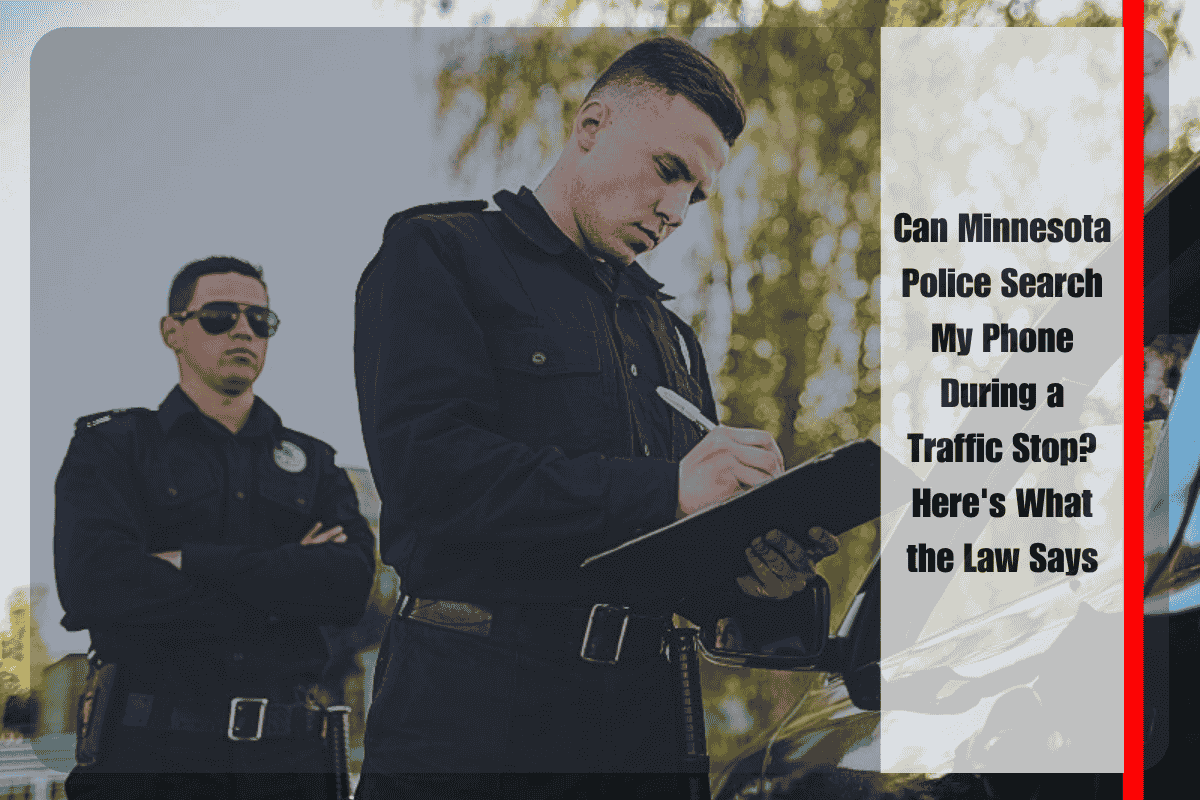In Minnesota, the question of whether police can search your phone during a traffic stop is a matter of constitutional law, state statutes, and case law interpretation. As technology has evolved, so has the legal understanding of digital privacy. As of 2025, the general rule is that law enforcement officers do not have the authority to search your cell phone during a traffic stop without either your consent or a valid search warrant, unless a narrow exception such as exigent circumstances applies.
The foundational protection against unreasonable searches and seizures is found in the Fourth Amendment to the U.S. Constitution, and Minnesota’s Constitution provides similar safeguards. The U.S. Supreme Court’s landmark decision in Riley v. California (2014) established that the search of digital content on a cell phone generally requires a warrant, even incident to an arrest. This precedent is controlling in Minnesota, meaning that without your consent, police cannot search through the data, messages, photos, or apps on your phone if you are pulled over for a traffic violation or similar minor infraction. The only exceptions to the warrant requirement arise in cases of genuine emergency, such as when police believe evidence will be imminently destroyed or where there is a threat to public safety. These exceptions are interpreted very narrowly by courts and very rarely apply during routine traffic stops.
If you are stopped, an officer may request to search your phone or ask to see specific items such as recent calls or messages. You have the right to refuse this request, and officers may not punish you for declining. Refusing consent does not provide probable cause on its own, nor does it create a valid legal reason to search your phone. It is recommended that drivers clearly and calmly state, “I do not consent to a search of my phone,” if asked. If police believe your phone contains evidence relating to a serious crime, they may seize the device and apply for a search warrant from a judge, but they cannot legally search through it until a warrant is obtained, unless the specific and rare emergency exceptions apply.
In the context of Minnesota’s distracted driving laws, which strictly prohibit the use of handheld mobile devices while driving, enforcement focuses on direct observation, not accessing the phone’s contents. Police may issue citations if they observe you using your device unlawfully behind the wheel, but they cannot compel you to hand over or unlock your phone to prove their case during a stop without a warrant or your consent. Similarly, if you are pulled over for another reason and a police officer suspects that your phone contains evidence of a crime unrelated to driving (such as texting in a hit-and-run case), they still must pursue a warrant to conduct any search.
Any evidence obtained from an illegal search of your phone, meaning a search performed without a warrant, your consent, or a valid legal exception, is generally inadmissible in Minnesota courts due to the exclusionary rule. Moreover, individuals who believe their rights have been violated during such searches are encouraged to consult with a criminal defense attorney to explore their options, including filing motions to suppress unlawfully obtained evidence.
Ultimately, your best protection is knowledge of your rights. You do not have to consent to a phone search at a traffic stop. Law enforcement in Minnesota must have either your voluntary permission or a judge’s approval in the form of a search warrant to access your device’s contents. If this process is not followed and there are no urgent emergency circumstances, any search of your phone is unlawful under both Minnesota and federal law.
Sources
[1] https://www.tsrinjurylaw.com/blog/proving-distracted-driving-in-minneapolis-crashes/
[2] https://www.siebencotterlaw.com/criminal-defense-attorneys/when-is-a-traffic-stop-legal/
[3] https://www.devorelawoffice.com/understanding-your-rights-under-minnesota-search-and-seizure-law/
[4] https://dps.mn.gov/news/ots/more-6000-drivers-cited-prioritizing-phones-over-safety-during-distracted-driving-enforcement-campaign
[5] https://supreme.justia.com/cases-by-topic/search-seizure/












